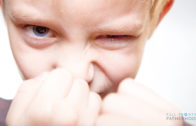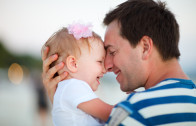Top 5 Most Important Things Parents Should Do
Podcast: Play in new window | Download
Subscribe: iTunes | Android | RSS
Today I want to cut to the chase and give you the five most important things that you should do as a parent.
#5 Our Attention (at least for a few minutes!)
Number five is to give your kids some regular, undivided attention. I know this can be difficult on top of our already busy schedules, but what I am talking about is simply 10 minutes at a time.
When my daughter was younger, I would set a 10-minute timer on my phone and then just be there and pay attention to her. I’d follow her lead and give her my undivided attention. I wasn’t trying to drum up some game or be entertaining. I was just being available for her.
If you do this daily they will come to expect to have that time with you. By getting regular undivided attention, they won’t be constantly requiring your attention because they actually got their tanks filled up through the time you were really present with them and they know that they will soon get your attention again.
#4 Our Availability (at least occasionally!)
Along similar lines, when your kids come pulling on your leg, try to let go of what you are doing and give them a little bit of attention. Once again, this will actually lead to them pulling on you less. When a kid or adult feels deprived, it makes them more needy and clingy. If they know they can get your attention, then they won’t try to get it as much. If you are constantly brushing them away because you are too overwhelmed with life’s business, then they will feel unfulfilled within themselves and they will be longing for some more connection.
I try to remember that my daughter is going to be moving out of the house before I know it and to savor these years before they are gone. That memory helps me to let go of my menial tasks and give her my attention, even for a couple minutes. This type of attention has been scientifically shown to support kids to be happier, feel more secure in themselves and thus ask for our attention when they really need it.
#3 Deal with Your Own Feelings
This is really important. It makes a huge difference if we know how to manage our own bad feelings. To be human is to have bad feelings. When we have our partners and our kids needing something from us, we can get more bad feelings. Unfortunately, most of us end up taking those bad feelings out on our kids and our partners. If we can instead come to have some conception of what is happening for us emotionally, and therefore be able to tolerate it a little bit more, then we can stop ourselves from so unconsciously taking it out on our family.
Of course we are all going to fail to contain our bad feelings. I do. We cannot always remain conscious and in control, because life is very provocative, particularly with kids. But when you get triggered, try to take a moment at some point afterwards to think about what happened for you. If you can, make space to feel the feelings, share them with another or journal. Therapists can really help us to understand, and more importantly free us from, our automatic reactions.
The reality is that, for many of us, when we get triggered, we are actually having emotional memories from when we were our kid’s age. My daughter right now is 11. I have lots of memories that are difficult from when I was 11. It is amazing how the feelings that I often have in relation to her really mirror those memories. Taking the time to remember how you felt at your child’s age, to really inhabit that experience a little bit more, will enable you to be more conscious and less reactive in the day to day with your child.
#2 Embrace Your Kid’s Bad Feelings
Similarly, it makes an immense difference if we are comfortable with our kid’s bad feelings. If we have a strong reaction to your kids’ anger, tantrums, sadness, or overwhelm, then we’re likely to make that bad situation much worse. If on the other hand, we can learn to be with their bad feelings, we don’t add to their emotional distress and actually teach them how to be with ‘negative’ feelings. The inability to be with such feelings is the root of a huge percentage of the unhappiness and emotional problems seen throughout our society.
In the moment when they are upset, notice what is happening with you and simply breathe. Just look at them and breathe and keep your reactions inside. Try to figure what is actually so hard about being with them when they are upset?
In the worst moments of my daughter’s tantrums, I would notice a horrible feeling of distress in my own body. I had such an impulse to try to force her to stop her expression in order to stop the bad feeling in my body. But by really isolating the physical discomfort and inviting in the sensation, I was able to redirect my frustration with her and instead be present to her distress.
Our kids really need us when they are upset. We don’t have to solve their problems, we do not have to tell them how to do it, but if we can be with them as they are having an upset moment, they will come to feel safer and be able to accept their own bad feelings. When we cannot calmly attend to them during their bad feelings, they do not learn this important emotional skill. This can lead to all kinds of behavioral and emotional problems in people’s lives. If we can show them that to be human is to have bad feelings, and we can learn how to just ride through those feelings and be present to them, then our kids will be able to get through their own bad feelings and not end up struggling with those feelings throughout their lives.
#1 Embrace your Own Destruction!
This may sound strange, but the most important thing you can do is to be able to survive your child’s destruction of you. To be a parent is to be destroyed by our kids.
I’m sure you know the experience either when your kid was 2 or 3, or when they were pre-teen. It happens over and over again. They attack us, criticise us, tell us we are a horrible parent and they wish we were dead. Sometimes we can let these things roll off our backs, but other times they really get to us and make us doubt ourselves as an adequate parent. They destroy our identities of being a good parent, for at least a moment.
The reality is that our kids have lots of bad, aggressive feelings in them. We all do. Kids need to get those feelings out and we need to be able to receive them and actually let them impact us. There is immense benefit in them destroying us in this way.
The key is what we do after this destruction. We obviously do not actually die in that moment. We are not actually destroyed. We come back with love and attention. It is very easy in response to these hard moments to come back by making the kid wrong and retaliating against them, or giving up and backing away as a parent. Giving up on being really close and instead parenting from a distance.
A lot of parents do this with teenagers. They assume, oh well, the kid’s rebelling and that is the end of it. I just need to back away. But our kids need us more than ever when they are teenagers. They need us to stay there. They emotionally punch us in the face. Perhaps we get defensive and show how much they affected us. But we stay in relation to them and our love for them. Not that we don’t say it hurts, but we do show up in the face of that intense aggression.
By surviving this destruction, our ideas about our children and our ideas about ourselves as a parent are shattered. It leaves us more humble, open-minded and open-hearted. We can see our kids anew and they feel seen. Many experts say this is the most important moment in all of human development.
In Summary
Said simply, our kids need love whenever we can give it, in all kinds of hard moments!
Thank you for joining me for another episode of Full Frontal Fatherhood. I would love to hear your thoughts. Please join the conversation below, but let’s keep it friendly. I’ll see you next time for another episode.
Take care,
Julian













